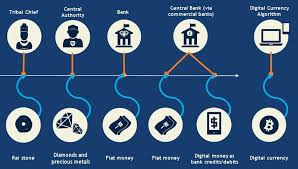Blockchain would allow independent verification of customers by an organization. Documentation verification provided by the client, the bank may share this detail in the chain of blocks. Each time new detail is provided, it can be linked like a new block through encoded updates of the general ledger.
This will also favor other entities that will benefit from being able to access this information in real time. Therefore, we can say that a kind of identity of the built-in client is created that can be kept for any upcoming transactions.
Use of this new technology in financial sector also brings many product hunt careers.
Avoid fraud
One of the main problems facing financial institutions and money transfer sector is economic crime, in other words, fraud. Most banks rely on a centralized database which makes them vulnerable to prone attacks by hackers.
Surely they will have realized that cyber security has become the fashion of the moment. All financial sectors are being recommended to reinforce their systems with the attacks in mind. By considering Blockchain use cases, each block has its time stamp and is attached with a previous block. Therefore, its use would eliminate or considerably reduce fake transactions.
Digital or smart contracts
Another great benefit is the use of digital or smart contracts. It is a scheduled contract, whose agreements are established in a computer code in the block chain. The contract is executed automatically without the need for an intermediary. These contracts can always be seen, but still cannot be adjusted. It contains all the information of the same: the people among which it is valid, when it will be executed, when the agreements have been registered, etc.
The smart contract can be very useful in carrying out many activities. An example of this can be in letter of credit. Letter of credit is normally used to settle single or multiple transactions as soon as the shipment has been delivered by the supplier. The contract would improve the contractual terms since the smart contract would be executed automatically formerly certain pre-established conditions are met. It’s significant that they are firmly supported in the law and meet the terms with any regulatory compliance, in all jurisdictions, if necessary.
Beware of privacy laws
The blockchain technology offers transparency in addition to lower counterparty risks and possibilities of error. However, we cannot forget an important obstacle: the safety of users. Privacy laws must be complied with.
Therefore, regulators must make sure that they’re ready to carry out their regulatory error inspections.
![[Jcount.com]](https://www.jcount.com/wp-content/uploads/2014/08/jcount150X50.png)
![[Jcount.com]](https://www.jcount.com/wp-content/uploads/2014/08/jcountstartupslogo1.png)





